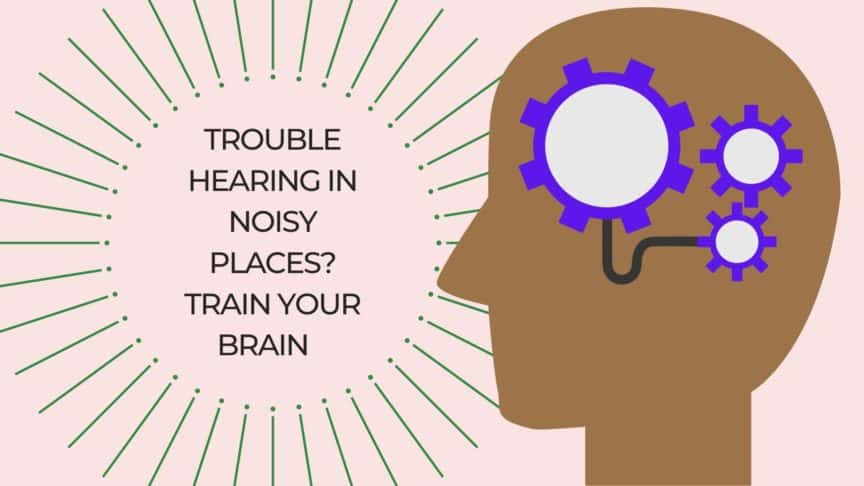Have you been struggling to hear when you are out and about? Is it especially difficult to follow a conversation in noisy rooms and spaces, amongst multiple conversations or ambient noise? This is one of the most common and earliest signs that you may have an issue with your hearing.
Relearning to Hear
First and foremost, it is important to understand that you are not alone. It is estimated that hearing loss affects 1 in 5 people in the US of all ages. Second of all, it’s important to understand that while hearing loss is irreversible in most cases there are actions you can take to deal with this condition. Hearing aids are the most common treatment for this condition, as they amplify sounds making it easier to hear people in noisy and quiet situations. While hearing aids have been found to be one of the most effective treatments for hearing loss, they can’t restore your hearing to its original ability. A long night of conversation can leave anyone exhausted but for people with hearing loss, this is especially applicable. Like a muscle, when the brain is exercised, it becomes quicker and more dexterous. In fact, there are certain exercises you can do to retrain your brain to hear amidst noise.
Listening Fatigue
While we collect sound with our ears the processing of sound occurs in our brain. The issue with hearing loss occurs when the tiny cells of the inner ear become damaged, they can no longer send audio information to the brain. This leaves the brain the task of filling in the missing audio information. The brain must work faster and borrow cognitive function from usually relied upon by other areas of the brain. Ultimately this is what causes listening fatigue after a long noisy social engagement for those with a hearing deficit.
Neuroplasticity and Hearing Loss
One of the most powerful aspects of our brains is its ability to adapt and to change over time. The scientific term for this is neuroplasticity and describes the brain’s ability to make new neural connections. When hearing loss occurs, neuroplasticity causes brain pathways you aren’t using to hear, to get reassigned to other senses, such as vision or touch. The danger of this, especially when hearing loss goes untreated for years is that even when you start to use hearing aids, there is the potential that you will never regain certain sounds which were processed with reassigned pathways. Research shows that when we are younger your brain has much more neuroplasticity which isn’t necessarily a benefit for a younger generation with a higher prevalence for hearing loss.
New Research on Brain Training
The good news is that you can retrain the brain to hear even through the noise. Brain exercise focuses on strengthening neural connections that recognize sounds, making your ability to hear and differentiate more sounds agile. In fact, this training can actually be fun as many of these exercises are available in the form of computer games. Researchers at Massachusetts Eye and Ear developed a computer game to help improve the ability to hear speech sounds in noisy situations. The researchers conducted an eight-week study to test the effectiveness of these cognitive enhancement games to see if they actually helped to hear amongst noise. The study participants played a computer game that asked them to detect small changes in sounds. When answered correctly they were able to add pieces to complete a jigsaw puzzle within the game. The study found that those who participated in this brain training could hear 25% more words in the presence of background noise than those who hadn’t had brain training in just those 8 weeks.
How to Improve Your Hearing
Early detection and treatment are the best prevention for cognitive decline due to hearing loss. The sooner you identify hearing loss and begin wearing your hearing aids the less chance you have of cognitive decline. However, it’s never too late to start treatment, especially when you can do simple exercises to retrain your brain to hear amongst noise. Programs, such as LACE (Listening and Communication Enhancement), or clEARWorks, are designed to enhance your ability to recognize speech sounds in noisy listening environments. To find out more, schedule a hearing test today.

